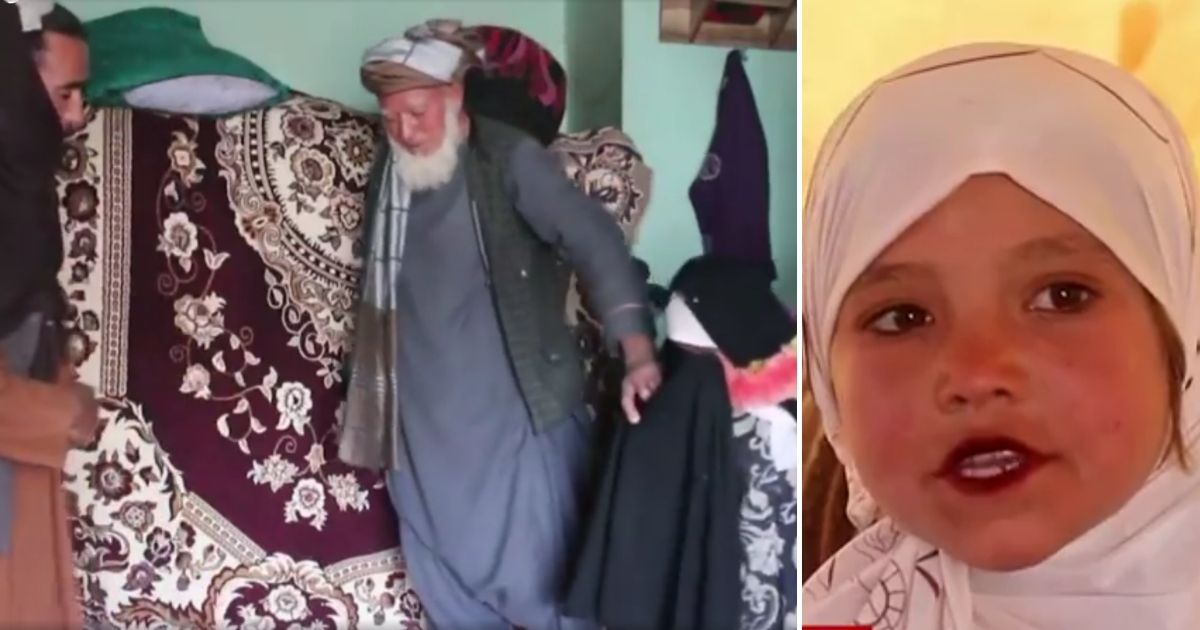Since August, after American and allied forces left, an economic crisis has taken hold in Afghanistan. Many families have been pushed to make impossible decisions in the interest of staying alive, selling off their daughters in order to feed the rest of their families.
A recent report by the Integrated Food Security Phase Classification (IPC) estimated that over 20 million people in Afghanistan will “face emergency levels of acute hunger” by March, and that three million children under 5 years old are currently acutely malnourished, according to CNN.
“The international community is turning its back as the country teeters on the precipice of man-made catastrophe,” Dominik Stillhart, director of operations for the International Committee of the Red Cross (ICRC), told CNN.
“Afghan young girls (are) becoming the price of food,” Mahbouba Seraj, leading Afghan women’s rights activist, added. “Because otherwise their family will starve.
“Usually there is a lot of misery, there is a lot of mistreatment, there is a lot of abuse is involved in these things … Some of them can’t take it. They mostly die pretty young.”
Technically, it’s illegal for girls to marry if they’re younger than 15, but that doesn’t stop the exchanges from being made, especially in the face of starvation.
Pressed for food and money, father Abdul Malik resorted to selling off his young daughters as child brides just so the rest of his family could eat.
He’d already sold a 12-year-old daughter into marriage, but in October he made the crushing decision to sell off his 9-year-old daughter, Parwana, who had hoped to continue her education and become a teacher.
[firefly_embed]
[/firefly_embed]
“We are eight family members,” he told CNN. “I have to sell to keep other family members alive.”
He’d tried other routes, and admitted to feeling guilty and ashamed. He’d traveled in search of work. He’d borrowed large sums of money. His family had begged. But still they suffered.
[firefly_embed]
[/firefly_embed]
“Of course, I was angry, I fought him, and I cried,” mother Reza Gul, 27, who was sold into marriage herself at 13, said. “He said that he didn’t have any option.”
Qorban, 55, offered to buy the child as his second wife. He gave her father roughly $2,200 worth of land, sheep and cash, promising to treat Parwana “like family.”
“My father has sold me because we don’t have bread, rice and flour,” Parwana said at the time. “He has sold me to an old man.”
[firefly_embed]
[/firefly_embed]
The trade was made. Things did not go well.
“They treated me badly,” Parwana said. “They were cursing me. They were waking me up early and making me work.”
Parwana’s story circulated, stirring up anger and urgency amongst readers, and within two weeks Parwana was back home and Qorban had gone into hiding after receiving excoriation.
Thanks to the help of the organization Too Young To Wed, mother Reza Gul, Parwana and her five other siblings were whisked away from the camp in Badghis province they’d called home for four years.
[firefly_embed]
[/firefly_embed]
Their father stayed behind, but he appeared to be relieved that his family would finally be well cared for.
“We are happy that Parwana is rescued,” Abdul Malik, who still owes Qorban the $2,200, said. “We are happy that (TYTW) will help us and they will provide a place for living.”
The mother and her six children were taken to a hotel in Herat and then set up at a safe house run by TYTW.
“This is a temporary solution,” Founder of TYTW Stephanie Sinclair said. “(But) really what we’re trying to do is prevent girls being sold into marriage.
“It is a moral imperative that the international community does not abandon the women and girls of Afghanistan. Every life matters, and the lives that we can save (will) better the experience of their whole family and their community.”
Reza Gul and her children have a new lease on life in the safety and comfort of their new surroundings.
[firefly_embed]
[/firefly_embed]
“I’m feeling so happy in this house,” Parwana said. “They gave me a new life.”
“I feel happy and safe here,” Reza Gul added. “My children are eating well since we came, they are playing, and we are feeling happy.”
This article appeared originally on The Western Journal.

























 Continue with Google
Continue with Google